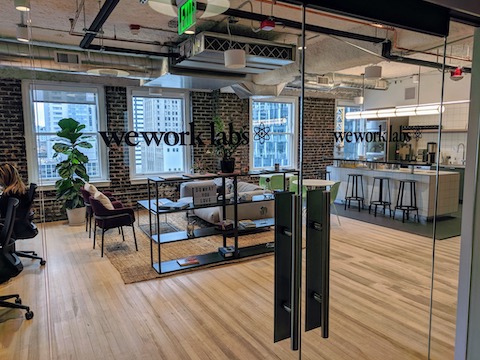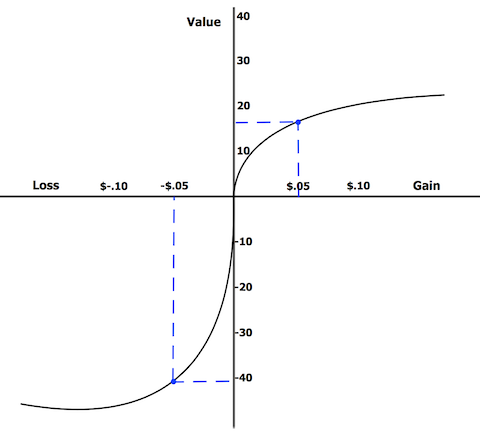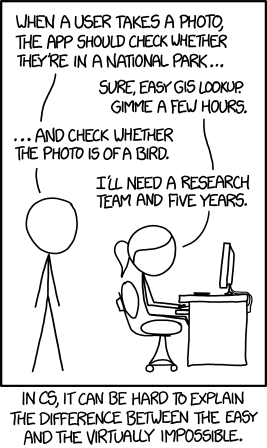The vast majority of people are not suitable as freelancers.
Shenzhen Translation Bureau is its compilation team, focusing on the fields of technology, business, workplace, life, etc., focusing on introducing new technologies, new ideas, and new trends abroad.
Editor ’s note: If you are an AI engineer and can get a high salary, is it necessary to be a freelancer? Can you be a freelancer? What are the benefits of being a freelancer? What are the pits to avoid? How can I be a freelancer? Masato Hagiwara, who quit his full-time job as a freelancer for a year, appeared and told everyone his own experience and experience. The original article was published on his personal blog with the title: My First Year as a Freelance AI Engineer

Key points:
The vast majority of people are not suitable as freelancers
Compared with full-time work, the income is reduced, but the working hours are also reduced accordingly
Freelancers have to tap potential customers all the time, most of them are through the Internet, and the opportunities will sometimes surprise you
The greatest benefit of freelancers is freedom, but this may not be the most important factor
As a freelancer, you need to be good at managing your time, which is equal to the client ’s money.
A salary increase is generally not included in the contract unless you negotiate with the other party. But you can slowly increase the rate (for example, twice a year) until the other party begins to refuse.

WeWork Labs in Seattle
Introduction
This week a year ago, I just quit my full-time job and became an independent NLP / ML engineer and researcher (NLP, natural language processing, ML, machine learning hereinafter referred to as “freelance AI engineer” ). So far, my experience is quite positive. The past year may be the biggest year of my entire career. My “Achievements” over the past year include:
Writing and publishing “Real-World NLP”, I have been writing this NLP primer for the past year and a half
In research, launched several open source NLP projects, including TEASPN, NanigoNet, Github Typo Corpus, and the most recent Open Language Profiles
Using transfer learning and multi-task learning to develop an ultra-fine NER system, ranking second in TAC-KBP 2019
After doing an introductory course to AllenNLP, it will be launched in a few months
There are many other clients ’projects that are not public
Now, I believe that the choice of being a freelance AI engineer is completely feasible (but only for those who are ready-see below). Many people I know, including my friends, always ask me how I feel as a freelancer. Many of them have never even heard of being a “freelance researcher” before (yes, neither do I). This is why I want to write down my thoughts and experience here, even if you are only a little interested, this may be helpful to you.
Should you be a freelancer?
For most people, the answer may be “no”. It is not suitable for anyone to take the path of freelance. You have to be the kind of person who enjoys freelance work. This will be described in detail later.
You must also be very good at your job. Think about your clients and consider this to be an employment contractor, whether it ’s a plumber or a lawyer. The reason why you hire them is because you are counting on the other party to almost certainly help you solve the problem, not because you want himWe become “a member of your team”, and then work together to solve problems, provide them with opportunities for learning and growth, as well as a large number of paid vacations and free lunches.
As a freelance AI engineer, you should start with the customer, get familiar with the product and code base, submit the first PR within a few days, and complete one of your business indicators within a few weeks. ML prototype or pipeline. If you are just starting to enter the field of AI, I think your best option is to work for a large company (for example, FAANG) with a lot of resources and opportunities, or to a fast-growing startup (if you are not sure which one to go to , I have heard Duolingo is not bad), and then use the identity of full-time employees to accumulate experience.
Get paid
I charge by the hour. I’ve never done charging by project. I think AI projects are more suitable for hourly billing because it is difficult to define the scope of work based on the results delivered.
My current charging standard is 200 US dollars per hour for short-term workers (for example, several hours per month), and 150 US dollars per hour for long-term workers (for example, more than 10 hours per week). Only once did someone tell me that my charges are too expensive, but most customers think this is a fixed price. If the customer can’t afford my charges, we generally negotiate based on the scope of work (for example, working hours per week) rather than the rate. The average rate for American AI engineers with skills like mine may be higher. Maybe I should raise my fees. Maybe it should have been this way …
Thanks to the “AI wave” in recent years, for freelance AI engineers, it is now completely a seller’s market (again, if you are not bad). You will never break those customer leads and inbound requests. I think a better rule of thumb is that you can continue to increase the charge standard until the rejection rate reaches 50%. In this case, you still have the remaining 50%. In any case, these people are often better customers. As a side effect of this, you will be very good at refusing. My default answer is always “No”, and my schedule is always very full (unless available, my current customers know this).
Make a living

The outlook theory is true
Even if I do n’t do anything, we have enough savings to avoid starvation for several years, and my wife has a full-time job, which is very helpful for my leap. However, even if you save enough money, fluctuations in cash flow will have a significant impact on your financial security. For example, if you work with 30 clients, you will only be paid 2 months after you start working for them. So in a short time, our cash flow is negative (especially when we moved from Pittsburgh to Seattle last summer), this period will consume our savings, relative to earning a certain amount of money, I really I hate the feeling of losing money. If you put financial safety first, it may be better to find a full-time employee.
Compared to my full-time job, my income has decreased in the past year, but our working hours have also decreased accordingly. I could have done more work and earned more money, but since my children are still young, it is important to stay with my family.
Find customers

West Coast NLP 2019
Most of my current and past customers have been found online. Conferences and seminars are also a good source of potential sales leads, especially when you also speak rather than just listen to them. When I find a potential customer who really wants to collaborate, I will directly apply through the “career” page. If you are frank enough, there will be companies (especially startups) willing to provide suitable candidates with remote and / or part-time opportunities, the number of which is surprisingly large.
As a freelancer, you are always looking for potential customers because most contracts do not exceed a few months. This is the huge difference between being a full-time and freelancer. At least when I was working full-time, my “Job Search” status was bimodal, either not watching or watching. If you only want a stable job and salary, then freelance may not be a good idea.
Free

Seoul, 2018
Everyone says that the biggest benefit of being a freelancer is freedom-whenever you want to do it, do it whenever you want. But at least for me, this may not be the most important factor. Especially in the technology industry, as long as employees can get things done, many employers do n’t care when or where they work. Even before becoming a freelancer, I can work from home when necessary (for example, my child is sick). In 2018, I even spent a month in Korea while learning Korean. If you are considering becoming a freelancer just because you want to find freedom in working hours and places, then you should probably consider finding a better employer first.
As a freelancer, you can fully control your workload. On the other hand, if you do full-time work, especially the full-time work of startups, it is basically a “binary”, either go all out or be eliminated. Your boss’s expectation is that you can realize your full potential. Generally speaking, you do n’t want to work 20 hours a week and get half the salary. Freelancers can easily do this, which is one of the greatest benefits of independence.
I am the kind of person who always has a lot of project ideas that are not necessarily related to the job. I always think that I am more an artist than an engineer / researcher, and being a freelancer is a natural result of this. If you are engaged in a full-time job with high requirements, you have to depend on luck or even have the energy to find a side job if you want to take a side job. But if you become a freelancer, everything becomes a sideline. Customers who have worked with me know that I am doing my own things with others, but no one will care (but some customers want to include a non-competitive clause in the contract, which I fully respect).
Time Management
As a freelancer, you need to be good at managing your time, which is equal to the client ’s money. I am a big fan of the Pomodoro Technique. All my work is managed by the Pomodoro Technique. In a typical work week, I can basically perform about 80 Pomodoro hours (= 40 hours) very reliably. If you have ever used the Pomodoro Technique, then you will probably know its hard work and workload. If not, you should seriously consider giving it a try-you will realize how difficult it is to really “work” for 8 hours a day (for example, there is no Internet surfing, no cell phone watching, no useless Slack chat, etc. Wait.). During the dayI will use Freedom on my laptop and Stay Focused on my phone to block distracting websites. Without these tools, I can’t even imagine how to work.
However, not all of the 40 hours can receive money. This also includes personal and work-related expenses, such as learning (see below), sending invoices, managing budgets, etc. In addition, if you are engaged in research work, you also need to consider spending some time in academic activities. If you make a paper comment on the meeting, you should include it. If you are going to review the paper for the conference, you have to count the time. This can help you be realistic about the “quota” set for each activity. Before the start of the new week, I will outline the plan in the form of points and set aside the expected number of Pomodoros for each activity. Compared with opening a kitchen sink-style “to-do list” always regretting that there is not enough time, this approach is much better.
Many of my clients do not require regular “check-in”. Currently, I usually only need to spend 2 to 3 hours a week to attend the meeting. The spillover effect of the meeting was too great, and it did cause me losses. For example, even if I only have one meeting in the afternoon, I often have to think about what I should talk about, or whether to make some necessary preparations (including booking a meeting room). After the meeting, I have to recall what we have discussed and whether there is anything that needs to be followed up. Although all these spillover effects are small, they will fragment my flow and cause a significant drop in work efficiency. Because I spend very little time in meetings, most of the time I will have a lot of time to work continuously, which is really helpful for me to keep my head clear.

Sometimes customers do not understand the difficulty of work
So far, this article has nothing to do with “AI”. What did I actually do? In the past year, I have put on many different hats-consultants, engineers, researchers. For some customers, I will meet with them and provide advice on how to implement AI projects. For others, I will write code as a contract software engineer. For others, I am engaged in research work and co-author of the paper. However, for many people, work is basically a hodgepodge.
I think modern machine learning work is suitable for part-time workersMade. If you are working on a large model, it usually takes several hours to train for a few days without speaking, which is not uncommon. Machine learning researchers and practitioners know how much time they spend on training models and hyperparameter tuning. If you are working full-time, you have no choice but to wait for the training to complete before switching to other projects (if any). As a freelancer, you only need to switch between different clients.
As an ML freelancer, you need to develop strategies to protect GPU resources used to train models. Some customers are very good to say that they will let me use their infrastructure, but some customers are not so easy to say (generally for security reasons, the contractor’s access rights are very limited). For my personal and small customer projects, I will run my own customized AMI (Amazon system image) with AWS’s auction instance as needed. I also have a smaller GPU instance on GCP, which can be started and stopped as needed. I will not train a huge 128-layer Transformer model on TPU (not yet), and I will not use the GPU 24/7, so this on-demand solution has been enough so far.
If you are engaged in AI work, it is important to allocate time for learning and personal development. If you are working full-time, this is often part of your daily work, and you often have to spend time reading papers, and there will be a “reading group” arrangement during working hours. As a freelancer, you do n’t have money for half of these hours. Generally speaking, you ca n’t charge customers for three hours because they spent so much time reading papers last week (if you know such a generous customer, or if you are such a customer, please be sure to tell me ). Remember, you are a professional, and others hire you to solve problems instead of spending money to learn AI. Everyone hopes that you have a good understanding and follow up on the latest AI development technology (I know, I I know … but does anyone really keep pace with the times now? Even in an area of AI?) I think this is the price you need to pay in order to get a higher unit price as an AI freelancer. .
I live in Seattle, but I ’m not sure if this helps freelancers. In addition to attending meetings, I usually work remotely and rarely go to work. Although I can do my job even if I live on the other side of the earth, my cooperation with Allen AI allows me to catch up with the team for lunch in a short time. If you work remotely, if you live in a low-cost city and work with customers in other large technology centers, that’s even better.
career development

Code & Supply, a co-working space in Pittsburgh
There are definitely some ways to make you a freelancer, but these methods will be very different from working full-time. I am just getting started now, so next year I may have a different view.
A salary increase is generally not included in the contract unless you negotiate with the other party. But you can slowly increase the rate (for example, twice a year) until the other party begins to refuse. For this reason, I think that as a freelancer, it’s probably easier to earn more than a full-time employee, because the latter needs to rely on performance evaluations and promotions that are usually beyond control.
When it comes to promotion, as a freelancer, you are not affected by office politics. Your result is two, either complete the work or not complete. You don’t need to keep thinking about which leader you should woo to get the next promotion. The downside is that although I will also guide junior developers and researchers working for my clients, you usually have no management experience as a freelancer.
I think of myself as an expert rather than a generalist. I think this is helpful. For example, if you encounter serious health problems and require very complicated operations, you may not want your family doctor to treat you. If you have a complex lawsuit involving millions of dollars, you probably will not seek advice from your personal tax accountant. Just doing your “AI” work may be in your best interests. If you are an AI generalist who only uses scikit-learn for “predictive modeling” and “text analysis”, then you may only be able to attract desperate startups who only want to present the word “AI” on their PPT Or a product team, and you have to compete with a lot of generalist “AI developers” on Upwork, and many people live in countries where wages are cheaper than yours. Reduce the scope of your niche market to attract specific types of customers, and their special needs can only be solved by few people in the world.
My specialty is NLP / ML for Asian language processing and language education. In defining your strengths, I think it would be helpful if it is defined by industry rather than ML stack. For example, you will find “AI solutions for healthcare” and “text analysis of finance” instead of “GAN” or “Seq2Seq model”. No matter what industry you are in, you need to be willing to learn a wide range of ML technologies and models-From simple regression to GAN and RL, there are not many.
Or even if you are a little interested in starting your own business, especially B2B SaaS companies, I think working as a freelancer for about a year is a good way to understand the market needs and then slowly transition into an entrepreneur. If you do many projects with many customers in this field, you will definitely notice some common patterns and requirements. These are the budding of good product ideas. This is how some of my open source projects (such as NanigoNet and Open Language Profiles) were born.
Legalize

Seattle
I set up a one-person limited liability company, which is a freelance company (I applied for a foreign entity after moving to Washington State). All contracts are signed with my LLC owner. If I have a “company”, some of my customers who are not in the US will prefer it. I ’m not a lawyer, you have to be reservations about what I ’m writing here, but I do n’t think there is much difference between a sole proprietorship and a single-person limited liability company unless you mess up (for example, being sued by your client ) Or you have achieved great success (for example, being acquired by a company can make millions of dollars every year, or you have formed a team of more than a dozen employees).
I think that even for immigrants like me whose native language is not English, the United States is a good place to be a freelancer. As a legal permanent resident, it can be easier for you to work with clients based in the United States, which generally pay higher fees. The legal system here is at least passable. If you know what you are doing, applying for an LLC is just a matter of filling out a form on the state secretary ’s website. In sharp contrast, even thinking about running a business in Japan would make me shudder even from Japan. You need to submit the certificate of the company’s seal, a copy of the company’s bank passbook, and put the company registration in a floppy disk or CD-R. I think their government still has some work to do before considering formulating a “National AI Strategy”.
One disadvantage of freelancers in the United States is medical insurance. I first used COBRA to continue the employer ’s health plan, and then moved backSwitch to another plan I bought in the state market. Be prepared to pay at least a few hundred dollars more monthly medical insurance premiums than full-time employees.
Before you start, take a look at “ work for yourself-for Nolo Laws and taxes prepared by various independent contractors, freelancers, and odd workers . I read this book page by page before I started becoming a freelancer, and every penny I spent on this book was worth it. Some of their related books are also good.
I do n’t have much to say about taxes, because April this year is the first tax return season since I became independent. Before the transition, I discussed my options with my CPA. I tracked my business income and expenses on Google Spreadsheet. I’m not sure if this is a good idea. At least, this will not forget to pay taxes on a quarterly basis.
Summary
In this article, I proved that being a freelance AI engineer is a possible career path. You need to understand that the situation may vary from person to person. So do n’t be mad if you go out and go bankrupt. If you are interested in learning more information, have any questions or feedback, please send me a generator. I will be happy to share my experience!
Translator: boxi.